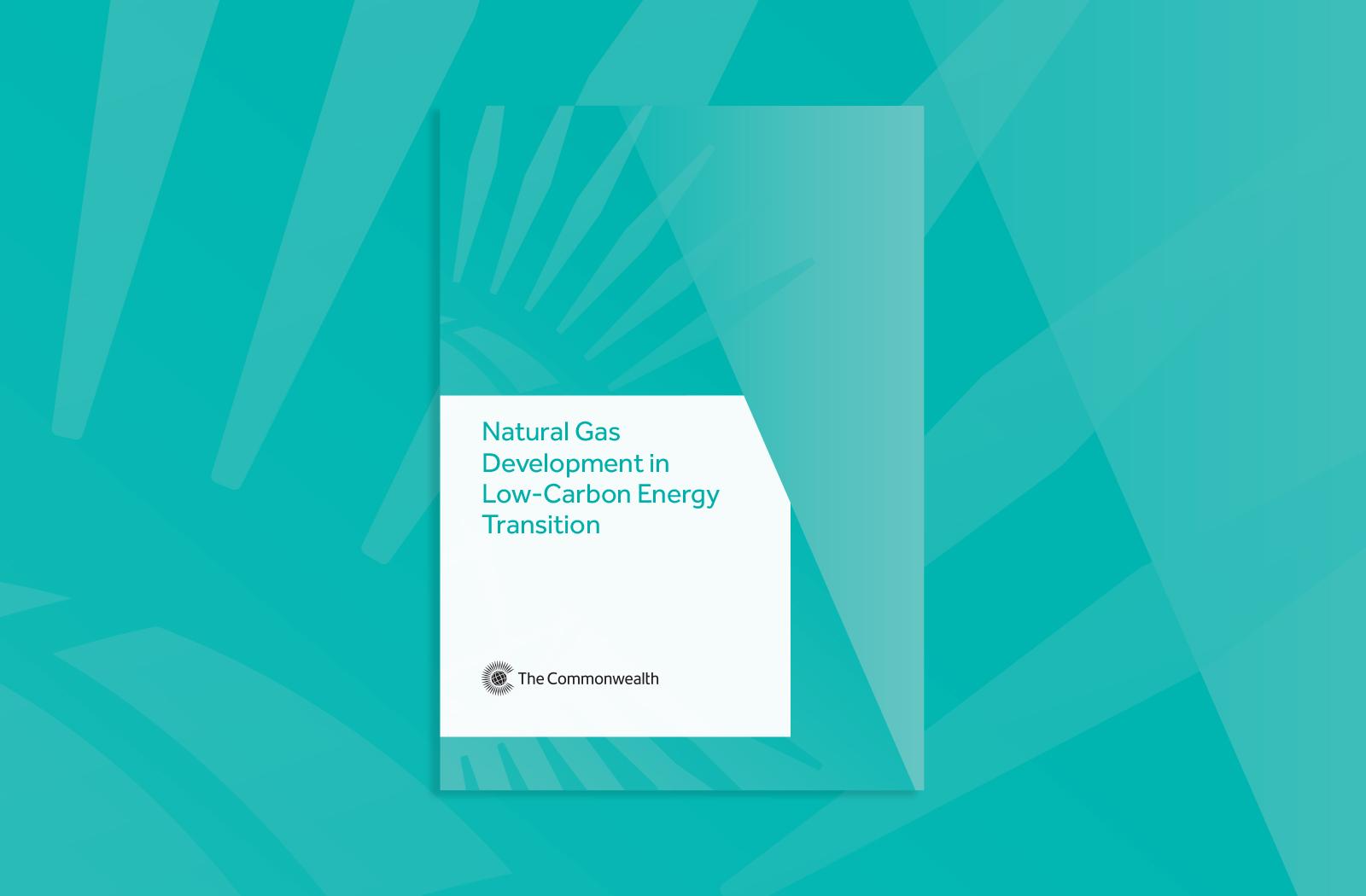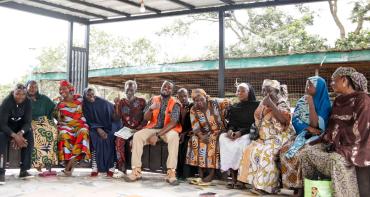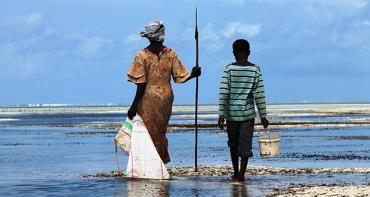
Introduction
Background and objective
Commonwealth member countries rich in natural gas face complex policy choices and trade-offs concerning their need to generate maximum benefits from their natural gas resources while transitioning to low-carbon economies. However, a lack of holistic guidance to inform such policy choices and trade-offs means that diverse and conflicting views may hamper sound policy decision-making and clear policy direction in steering their low-carbon energy transition pathways to achieve their development and climate change goals.
This report is intended to act as a guide to help inform policy choices and actions. The prospects of natural gas development in an energy transition raise several policy issues that will influence Commonwealth member countries’ options and choices for low-carbon transition pathways. The focus of this report is on the issues highlighted in Table 1.1 below.
Table 1.1 Issues for policy considerations in low-carbon energy transition
|
Issues |
Consideration |
|---|---|
|
Geopolitics and energy |
The energy transition will herald a shift of geopolitical influence from fossil fuel countries to countries that invest in and take advantage of opportunities created by renewable energy technologies. |
|
Energy security |
Exogenous shocks such as the Russian invasion of Ukraine and the impact of the global response to the COVID-19 pandemic have raised concerns over energy security and the strategic importance of natural gas in the energy transition. |
|
Natural gas in the global energy mix |
The global outlook for natural gas provides critical insights for policy makers on opportunities and uncertainties that may impact exploitation of their natural gas resources. |
|
The value of natural gas to the energy transition |
While natural gas is argued to play an important role in the energy transition on account of such factors as low-carbon content compared to other fossil fuels, its drilling, extraction and transportation often result in fugitive emissions such as methane. This is a much more potent gas than CO2 – though in the short term – in causing global warming. |
|
A dilemma for resource-rich Commonwealth member countries |
A significant number of developing Commonwealth member countries rely on their ongoing production of, or yet-to-be-developed, gas resources for the revenues they provide or could provide. They may find that the energy transition offers more challenges, which could result in the realisation of such risks as reduced investments, stranded assets and ageing infrastructure. |
|
Nationally Determined Contributions (NDCs) and their implications for natural gas development |
In meeting commitments to submit voluntary NDCs to the UN Framework Convention on Climate Change (UNFCCC) secretariat, member countries are presented with complex policy choices in determining their NDCs in ways that could constrain their ability to exploit their natural gas resources. |
|
Fair and equitable energy transition, particularly for fossil fuel-dependent developing countries |
The social and economic impacts of energy transition have implications for the priorities, choices and, hence, policies pertaining to how gas-rich developing countries address their energy poverty and energy access gaps as they strive for economic development. |
Gas-rich countries, including Commonwealth member countries, have made pledges to reduce CO2 emissions in their various Nationally Determined Contributions (NDCs) as part of their commitments under the Paris Agreement. As a result, they are faced with complex policy choices and trade-offs in how to maximise the benefits from their natural gas development while transitioning to a low-carbon economy.
For gas-rich developing countries, which include countries in sub-Saharan Africa, several of them Commonwealth members, an added complexity is achieving the right pace in the transition away from fossil fuels.
‘Africa must have natural gas to complement its renewable energy … Even if Africa were to triple its production of natural gas from current levels, its contribution to global emissions would only rise by 0.67%.’
Akinwumi Adesina, President of the African Development Bank
‘If we make a list of the top 500 things we need to do to be in line with our climate targets, what Africa does with its natural gas does not make that list.’
Fatih Birol, Executive Director of the International Energy Agency (IEA)
With significant gas reserves, a resource-rich country would face such complexity as it navigates the impact and cost implications of, as well as the necessary mitigating actions for, the transition to a low-carbon world. This happens against the backdrop of the need to enhance the sustainability of energy systems, in keeping with the global shift away from fossil fuels as a fundamental component of strategies to combat global warming. With the development of gas resources including infrastructure involving large financial outlay, in particular foreign direct investment in developing countries, this shift has involved the capital markets, where competition for risk capital for investment in gas development is increasingly stiff. This is proving particularly difficult for the energy transition journey of countries reliant on gas development for foreign exchange revenue and for potential gas-based power sector development. As a result, public finances have come under pressure to fund gas infrastructure projects.
Gas producer member countries
In developing policy considerations to frame possible pathways for a low-carbon transition, an analysis is presented in this section of the risks, challenges and opportunities for gas development in a low-carbon context, drawing on existing reserves and production data in a selection of Commonwealth countries. In this analysis, 16 Commonwealth member countries with significant proven natural gas reserves, recent commercial discoveries and for which publicly available production data are available, have been selected, across different stages of development, and with different gas resource profiles. These countries are: Australia, Bangladesh, Brunei Darussalam, Canada, Ghana, Guyana, India, Malaysia, Mozambique, Namibia, Nigeria, Pakistan, South Africa, Tanzania, Trinidad and Tobago, and the United Kingdom. They cover the spectrum of countries by income status (see Table 1.2).
Table 1.2 Selected Commonwealth gas-producing countries
|
Low-income economies |
Lower middle-income economies |
Upper middle-income economies |
High-income economies |
|---|---|---|---|
|
Mozambique |
Bangladesh |
Guyana |
Australia |
|
|
Ghana |
Malaysia |
Brunei Darussalam |
|
|
India |
Namibia |
Canada |
|
|
Nigeria |
South Africa |
Trinidad & Tobago |
|
|
Pakistan |
|
United Kingdom |
|
|
Tanzania |
|
|
Source: Adapted from World Bank
Note: except where specified otherwise, the time horizon considered in the analysis is up to 2030, where data are available.



